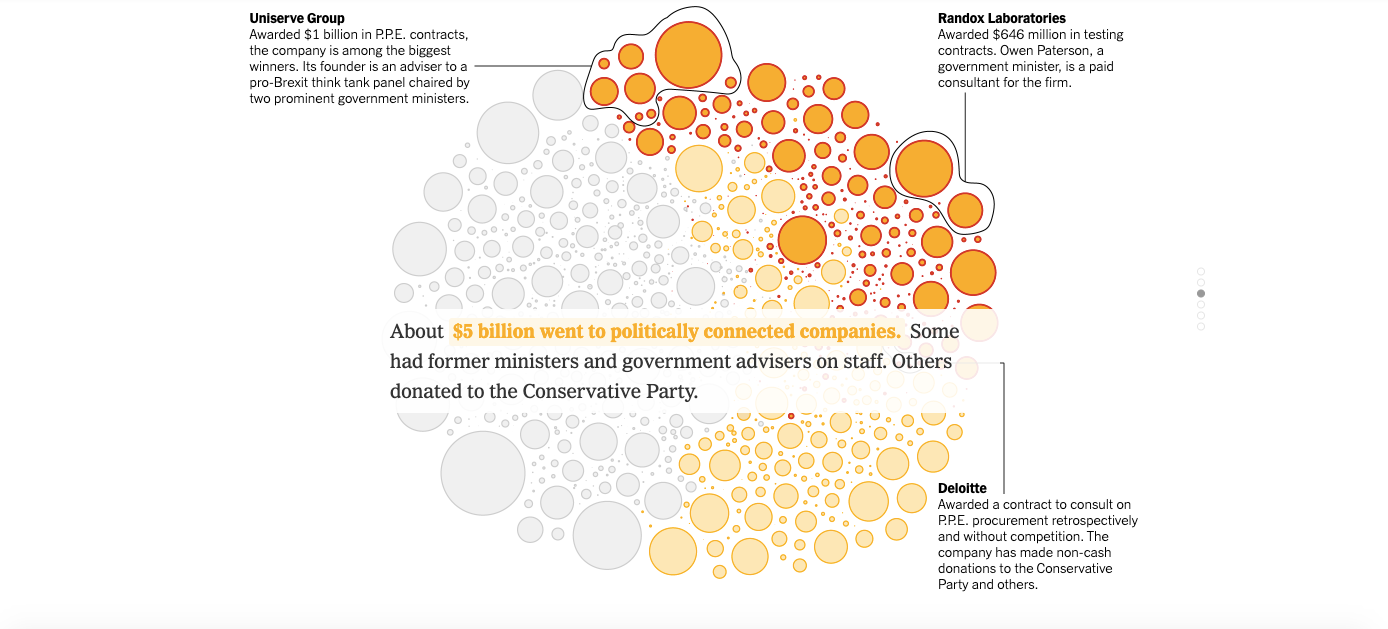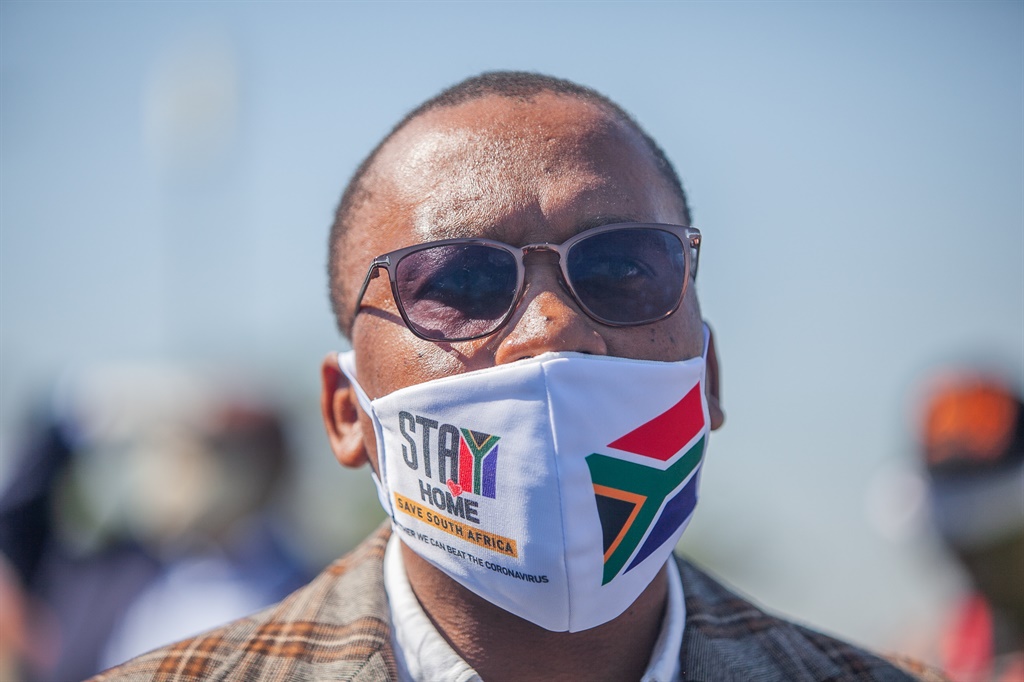Covid-19 has been a godsend for corrupt politicians around the world
'The world spends more than US$7 trillion on health services, and that at least 10–25% of global spending is lost directly through corruption.'

It's certainly not just in South Africa that politicians have used the pandemic to fast track their own road to wealth.
Yes, while millions of citizens are legally bound to obey strict limitations on their freedoms and business is forced to close down to ensure the 'safety of everyone' - government officials...publicly-elected government officials, apparently elected to 'serve the people', are using the opportunity to get rich quick.
In South Africa, as we know, senior politicians, at both provincial and national level, have been accused of tender irregularities when it comes to the procurement of PPE. This story you know well and is really nothing new.

In the United Kingdom however, reports are emerging that politically-connected companies (ones obviously in favour with the ruling Conservative government) have won lucrative contracts worth billions of pounds for protective gear and other equipment.
'The New York Times analyzed a large segment of it, the roughly 1,200 central government contracts that have been made public, together worth nearly $22 billion. Of that, about $11 billion (that's half of all the contracts) went to companies either run by friends and associates of politicians in the Conservative Party, or with no prior experience or a history of controversy. Meanwhile, smaller firms without political clout got nowhere.'
Names fingered in the scandal include: Deloitte, KPMG and Honeywell.

It gets even more odd in the UK where Matt Hancock, who is the British Health Secretary, apparently awarded a contract for vials to a neighbour who contacted him earlier in the year via WhatsApp.
'Alex Bourne, who used to run a pub close to Hancock’s former constituency home in Suffolk, said he initially offered his services to the UK health secretary several months ago by sending him a personal WhatsApp message.
Bourne’s company, Hinpack, was at that time producing plastic cups and takeaway boxes for the catering industry. It is now supplying about 2m medical grade vials a week to the government via a distributor contracted by the NHS.

In the US, the Trump administration has awarded contracts to a handful of unexpected and inexperienced companies with multimillion-dollar contracts to produce disposable medical gowns to protect workers on the front lines of the coronavirus pandemic.
- One deal, for $323 million, went to JL Kaya, a small business run from a Florida warehouse, whose only prior federal contracting work was a $7,296 project to make gauze.
- A batch of contracts worth $194 million went to Health Supply US, a company founded six months ago by a former Trump administration official.
- And an $88 million contract for gowns went to Maddox Defense, which says it has done government subcontracting work but has never managed a major contract of its own.

According to Jim Cramer of CNBC's Mad Money (love him or loath him) - the coronavirus pandemic and corresponding lockdown made way for “one of the greatest wealth transfers in history,”
“The bigger the business, the more it moves the major averages, and that matters because this is the first recession where big business … is coming through virtually unscathed, if not going for the gold,” he added.

Shockingly, one of the most respected medical journals in the world, The Lancet, at the end of 2019 published an astounding paper, written by Patricia Garcia MD, the former Minster of Health of Peru, on the rampant corruption in the global healthcare system - calling it “the biggest threat for the future of health globally.”
'It is estimated that the world spends more than US$7 trillion on health services, and that at least 10–25% of global spending is lost directly through corruption, representing hundreds of billions of dollars lost each year.
These billions lost to corruption exceed WHO's estimations of the amount needed annually to fill the gap in assuring universal health coverage globally by 2030. However, the true cost of corruption for people is impossible to quantify because it can mean the difference between wellness and illness, and life and death.'
The health system - run by people who have taken an oath to uphold ethical behaviour at all costs - is ravaged by the greed of individuals that threatens the lives of millions they have vowed to protect.

What is very clear is that our systems of governance are broken. The nature of how the world operates is no longer useful for the majority of people and therefore has to be discarded. We clearly need new, appropriate systems that serve the interests of society not just the few at the top.
There is growing anger around these issues and this frustration will, without doubt, result in growing numbers of mass protests and increased levels of violence and desperation, calling for radical change. It's not a matter of 'if', rather just a question of 'when'?
The evidence is clear - new paths are needed.




